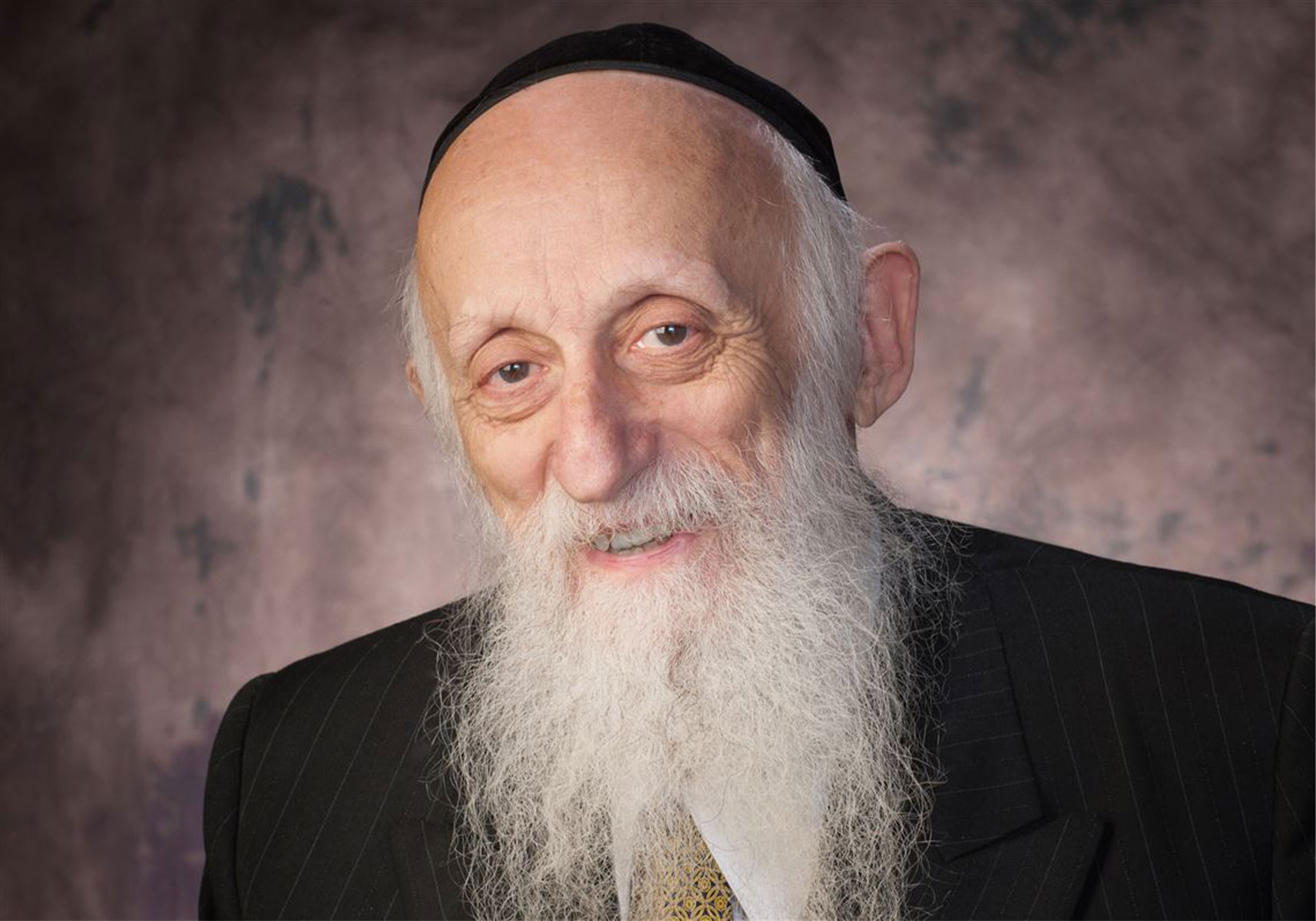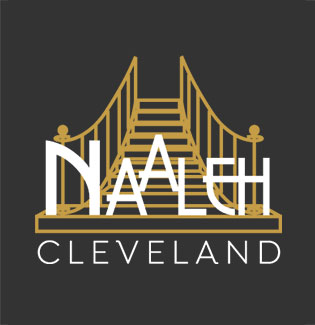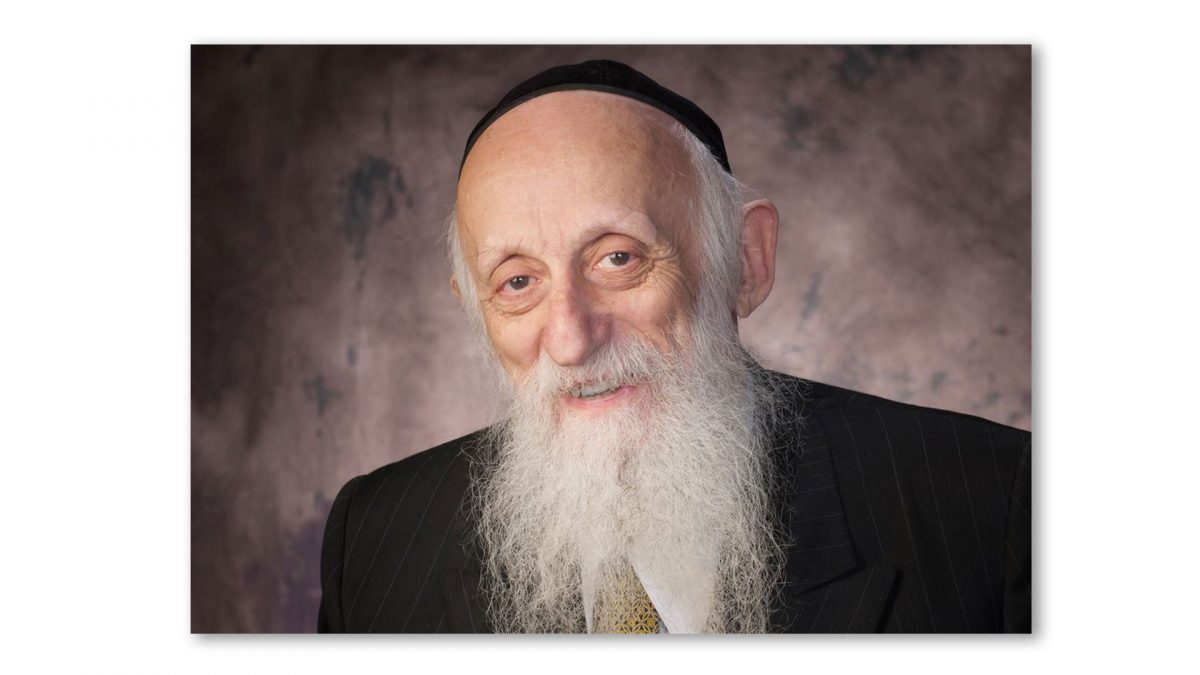
Memories of Rabbi Abraham J. Twerski Zt"l
By: Rabbi Naphtali Burnstein
My wife and her family had the privilege of knowing Rabbi Abraham J. Twerski, M.D. as a close family friend. He even called them “cuz”. When he would see them in a crowd when he was speaking, he would share with them a warm smile and a sparkle in his eyes. Young and old could feel his warmth and love.
Rabbi Twerski was brilliant, a master orator, and a massive Talmid Chochom. To watch him speak without a note was always very inspiring. He loved people and respected all walks of life. Everyone in return reciprocated that love. He was very approachable, and people enjoyed being in his presence. He made everyone feel so special.
My wife’s family, and for that matter, the entire Pittsburgh Jewish community, felt like family with the Twerskis. As a Ba-al Tefilah on the Yomim Noraim, his davening was always so inspiring and uplifting. Wearing his Chasidishe garb, you felt you were in the presence of royalty. Despite it all, he was always unassuming and very approachable. On Chanukah, Rabbi Twerski and his wife would appear at my in-law’s door with a large bag of toys. He chose a toy that was specifically appropriate for each child. He would sit on the floor, connecting the train tracks to make sure it all worked.
Brilliant, yet unassuming, busy yet caring, and full of love for everyone.
Rabbi Twerski’s contributions to the world at large are way beyond what any one individual could dream of achieving. As a psychiatrist, he helped thousands of people through their difficulties. Whether it was an addiction to alcohol, drugs, or anything else, he did his work with love and with that special non-judgmental approach to everyone. There are so many people, Jews and non-Jews alike, who owe their lives and families to his patience and willingness to help.
The Jewish world is the beneficiary of his dozens of popular Seforim on a wide range of topics that capture the essence of Jewish life, observance, philosophy, and human nature.
As a Rav, I benefited much from Rabbi Twerski. His non-judgmental approach to everyone and his patience are lessons I will never forget. In addition, I benefited greatly from his many scholarly works on a wide range of topics. When looking for direction in developing a thought, Rabbi Twerski’s seforim are an obvious address for me. Our world has lost a gem whose impact and contribution will be felt for many years to come.
A Rabbi, a Psychiatrist, and a Pioneer
By: Shmully Halpern
Tzaddik, a righteous person, and Gadol, a (scholarly) giant, are terms frequently utilized in Orthodox Jewish circles when describing people of distinguished character and significant Torah knowledge, among other attributes. One term not so common is יחיד בדורו , unique to his generation. From all the many superlatives ascribed to the recently departed Rabbi Dr. Abraham J.Twerski Zatzal, this term seems the most appropriate. Whereas a traditional Tzaddik, or Gadol, exemplifies the principle of ונקדשתי בתוך בני ישראל, the sanctification of God’s name amidst the children of Israel, Rabbi Twerski’s reach and impact extended far beyond the Jewish world as evidenced to a certain extent by the glowing tributes in the secular media including ABC News and the NY Times.
Perhaps two directly related areas personify the unique greatness of this individual.
Today, though mental health organizations that work within the Jewish community bemoan the ongoing stigma associated with seeking out mental health assistance, they readily acknowledge the tremendous progress made over recent years. During the onset and throughout the heyday of Rabbi Twerski’s professional career the stigma was immeasurable. Anyone suffering any level of mental health crisis often found the only option being at the doorstep of Rabbi Twerski. Countless souls and their future descendants owe all they have to Rabbi Twerski.
At a time when open and frank discussions on the most difficult of topics such as the various addictions and abuse were none existent, Rabbi Twerski was a trailblazer in ensuring that these conversations were happening even at times to great scorn. Local organizations like Naaleh and international organizations like Amudim owe whatever inroads have been made in breaking the stigma to Rabbi Twerski.
A brilliant Torah scholar in his own right, the many Torah works of Rabbi Twerski continue to resonate with many that perhaps may never otherwise have a connection to the Torah, the eternal bond between Jews and God. The Talmud states, אמר רבא לעולם ילמוד אדם תורה במקום שלבו חפץ, Rava says that a person learns Torah only from a place from which his heart desires to learn. When one reads the works of Rabbi Twerski, one clearly feels his decades of unique experience saturated in every word. Speaking with infinite love, empathy and sympathy, Rabbi Twerski uses the eternal messages of the Torah to relate directly to survivors but also those in midst of their struggles, puncturing the defensive walls often built through years of pain and anger, and touching their heart like no other. An individual in the throngs of addiction or in excruciating post traumatic pain often does not seek solace in the words of the Torah. Rabbi Twerski had the innate ability to walk a fine line in his teachings and guide his patients and students in not only overcoming their struggles but utilizing them as a springboard to further their Torah knowledge and closeness to God, following in the footsteps of his namesake, our collective forefather Abraham.
.The world lost a giant, the Jewish world lost a man who exemplified the concept of being a light unto the nations. The world lost a giant, countless individuals and families lost their father, their Rabbi, their friend, their live-saving messenger from God.
Rabbi Twerski has left us, but his legacy lives on. Whether it’s direct conversations with a therapist or participation in a support group, or perhaps even just open conversation about the value of ensuring one’s mental health is well balanced, for an Orthodox Jew the foundations for these actions were all laid by Rabbi Twerski.
As Rabbi Ami and Rabbi Asi in the Talmud explain the words of King Solomon in Proverbs דאגה בלב איש ישחנה “If there is anxiety in a man’s heart, let him quash it”. One said: He should forcefully push it out of his mind, and one said: It means he should tell others his concerns. The value of verbally discussing one’s troubles goes back to our ancient history.
Additionally, our current text for the Prayer for the Sick beseeches God for a רפואת הנפש ורפואת הגוף, a healing of the soul and a healing of the body. The soul resides is in the heart.
King David says in Psalms זבחי אלקים רוח נשברה לב נשבר ונדכה אלקים לא תבזה, ”The sacrifices of God are a broken spirit; O God, You will not despise a broken and crushed heart.” and קרוב ה׳ לנשברי לב ואת דכאי רוח יושיע “God is near to the broken-hearted, and He saves those of crushed spirit”
Perhaps when Rabbi Twerski entered the medical field he knew how God is found in the troubled soul and prioritized רפואת הנפש the healing of the soul above רפואת הגוף the healing of the body.
If I may suggest, a fitting tribute would be to ensure his decades of foundational work is continued. Whether its with God’s help and guidance, simply making time to be a friend, mentor or sounding board. To provide a safe space for our friends and family to vent or to cry. To provide encouragement when needed or to intervene when critical. However, perhaps most important of all, Rabbi Twerski struck the first blows to the negative stigma associated with seeking mental health assistance in the Orthodox community. The Cleveland community is blessed with many wonderful mental health professionals, including many who live and breathe the Torah ala Rabbi Twerski. Help is available for anyone in need. Rabbi Twerski amassed a tremendous amount of merits in this world. Anyone who overcomes the stigma and gets the help they need and also those that encourage and facilitates others to receive this help surely will have an unparalleled advocate in the Heavens.
May Rabbi Twerski’s memory be a blessing and his legacy live on, until as the Prophet Yeshaya states לא ישמע עוד חמס בארצך שוד ושבר בגבוליך “Violence shall no longer be heard in your land, neither robbery nor destruction within your borders” with the coming of Mashiach, speedily in our days. Amen.
Remembering My Uncle Shea
By: Yocheved Davidowitz
When my great Uncle Shea was little, my great grandmother (his mother) called him by the nickname “Shiku Oitzer”, Shea my treasure. Reminiscing, my Aunt Rochel said that it wasn’t until she was about 9 years old that she realized Shiku Oitzer wasn’t his actual given name. Apparently, there was something magical about him from the day he was born. The era that he was born into was also a turning point for my great grandparents and signaled a start of a new life for our family.
My great grandparents came to America in 1928 with two small children, my grandfather and his younger brother Motty. They left the town of Bobov to the completely alien environment of Milwaukee, Wisconsin. Uncle Shea, the middle of the 5 brothers, was their first child born in America. He was born to parents who learned how to create a family and a community that allowed Chassidishe Jews to thrive in the American Midwest without compromise. Indeed, Uncle Shea’s life is a testament to my great grandparents' unshakeable adherence to their mesorah, while acknowledging the new world in which they found themselves.
I can only share a few memories, tinged with the overwhelming regret of not taking advantage of better knowing my great uncle when I had the chance. As the patriarch of our family, Uncle Shea was the connection to our history, a living example of a spiritual heritage and a model of how we can live in the modern world without losing sight of our identity. He once told me that when he was in medical school, he wanted to be a surgeon. It was his objection to working on shabbos that steered his interest towards psychiatry. His professional trajectory was guided by his commitment and uncompromising adherence to the Torah.
A lot of people who work in the secular world, do so for practical reasons. Uncle Shea’s journey to medicine and ultimately addiction work was an outgrowth of a core understanding of purpose. He wasn’t a rabbi who was also a doctor. He was a person who served Hashem with every aspect of his life - work, home and play. He had a great sense of humor and an ability to use that humor - not as a release valve - but as a vehicle to help others. People know about his work with the Peanuts characters, but I also remember turning on an Agent Emes video for my kids and being unsurprised that Uncle Shea was acting in a movie for children.
Years ago, my mother gave me what was ostensibly Uncle Shea’s top secret cell phone number. I was warned that I was not allowed to give it out under any circumstances. Over the years, I have occasionally received calls from people trying to get in touch with my uncle - addicts or family members of addicts, seeking his guidance and advice. They heard I was his niece and hoped I could make a connection. They didn’t realize that if someone was in need, he wasn’t hard to get in touch with. I called him after one such request and his response was: “Tell them to call me tonight after 10:30”. “At this number?” I asked - after all, I wanted to maintain my security clearance “Yes.” Then he hung up. (One fond memory all my relatives have been sharing is how he always ended phone calls abruptly.) I thought I was special because I had his number, but the truth is, everyone had access. He never seemed to resent intrusions on his time or personal space. When I was in seminary in Israel years ago, I sat with him in a restaurant and got a tiny glimpse of this. Our meal was repeatedly interrupted by other guests, coming to say hello, telling him they read one of his books, or heard him speak one time in St. Louis.
At his funeral, he said he didn’t want any eulogies, he only requested that the song he wrote, Hoshea es Amecha be sung. He felt this song was his zchus. Our family called him by the name Shea - in fact when people would ask if Abraham Twerski was my relative it always took me a minute to realize that they meant my Uncle Shea. That song that starts off with his name is a code for how he lived: He respected his fellow Jews without judgment and tried to uplift the spirit of every person he interacted with.
Losing a famous relative has proven to be an interesting experience. We feel our own grief that is personal and we know that the world is grieving as well. The world rightly claims a role in our private reflection. Their grief validates ours and simultaneously highlights the enormity of our loss. We are keenly aware that not only we, but the world, is bereft. Indeed, since the passing of Uncle Shea, we have all lost our treasure.

